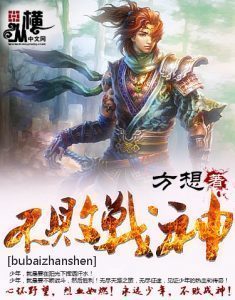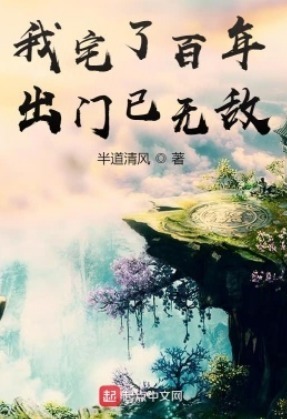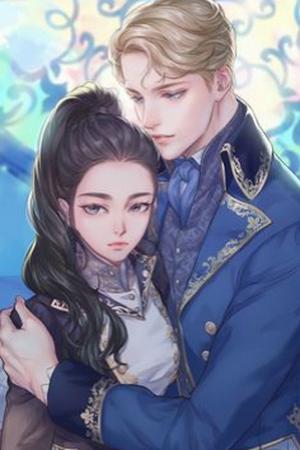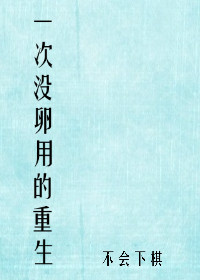Novel Name : Pursuing Immortality
Pursuing Immortality Chapter 107
Chapter 107: A Miao Village
Translator: SophiaX Editor: Kurisu
Shimen was in Xiang Zhou, which belonged to Hubei Province in the south’s central region of the country. [1]
Founded ninety years ago, the country had thirty-six provinces with vast territory, abundant resources, and an enormous population. [2]
Xiang Zhou had a relatively low population density. There was a distinctive boundary between the city and the wooded mountains. The developed region was on the east side, while the west remained in its backward state, filled with primitive terrains unchanged for millennia and clusters of villages living by their traditions passed down since the ancient times.
Together, these boundless and lofty mountains were known as “the West of Hunan” and Shimen was the gateway of this region.
“Beep beep!”
Along a meandering and rugged mountain road, a worn-out car was moving slowly with Xiaozhai behind the wheel. She suddenly pressed the horn and stepped on the brake.
“Damn it!”
Gu Yu hopelessly pushed open the door and got off the car, shooing away a bamboo partridge from the middle of the road. The bird gave him a despising look, made a series of “kut-kut-kut” and fluttered onto a low rock.
“Everything is turning spiritual these days. Men no longer scare them!” He grunted as he got back into the car.
“You wish. If only they could all become spiritual,” commented Xiaozhai.
“Tsk!”
Gu Yu smacked his lips and said nothing in return.
There was nothing they could do about it.
They were struck by a sad fact when they arrived at Shimen—the density of spiritual essence here was a mere 1. Well, not 1. To be more precise, it was somewhere between a 1 and a 2.
The existence of a node was only possible if a 2 was detected in the peripheral area, which meant they would probably find nothing abnormal in Pinghu Mountain.
However, since they were here already, they might as well take a look, even if it was just to make sure. Transportation in Shimen was extremely inconvenient and a mini-bus only ran twice from the county town to various villages every day. They had missed the second one that day and had to wait till the following morning if they wanted to go out there.
They did not like the idea of waiting around doing nothing and decided to drive there themselves with a rental car.
It was only after they hit the road when they realized how upsetting the reality was. The route was so confusing and the place was incredibly far away! As soon as they drove the lousy car into the mountains, they had no idea where they were going and which way they had come from.
With their current speed, they would need a lot of luck just to find a place to spend the night before dark.
“Beep beep!”
Xiaozhai drove on for some distance, turned around a bend and honked again. This time, it was because a girl wearing folk costume was walking slowly ahead.
She turned around and waved at them with a smile.
Xiaozhai drove up to her and stopped the car. The girl spoke her mandarin with a strong accent, “I’m going to the stockaded village over there, could you give me a lift?”
“Sure, hop on.”
“Thank you so much!”
She climbed into the back seat, the small bells hanging around her waist jingling along her movements, which attracted much attention from the two. The girl was 15 or 16 years of age, had fair skin and a silver comb buried in her hair. She wore a wrap-up-styled top with a wide collar and a pair of long blue trousers. An odd-looking insect was embroidered on her cuff.
Gu Yu shot a few looks at the little insect and grinned, “Are you from a Miao village?” [3]
“Yes. Go over that mountain and cross a river, then you’ll see our village. I went to town to buy some stuff today and returned late. Luckily, I ran into you guys…”
The girl was brisk, and so went on rambling, “Oh, by the way, my name in mandarin is Long Tang and my family name is Ghob Miel in Miao language.”
“What?” The two were baffled.
“Ghob Miel,” repeated the girl. [TL/N: Basically, an impossible pronunciation to the mandarin-speaking crowd.]
They got it the second time. It sounded something like “Ge Mi”. The Miao people in Xiang Zhou consisted of twelve clans, or twelve major Miao surnames, which had evolved into countless other family names. After years of blending and changing, corresponding mandarin surnames were introduced into the system.
Ge Mi corresponded to Long in mandarin.
After introducing one another, Long Tang asked, “Are you tourists?”
“Yes, we’re going to Pinghu,” replied Xiaozhai.
“Pinghu? That’s so far away, you won’t get there before dark. Why don’t you come to my village? We have lodgings and places to park your car.” It seemed she would speak out whatever came into her head without any reservations.
Gu Yu was curious. “Do you have visitors from outside as well?”
“Of course. We have a lot of visitors in the summer, we sell them little ornaments we made ourselves, then we would sing and dance together. It’s off season now. It’s too cold and nobody comes at this time of the year.”
“…”
The two exchanged looks and Gu Yu smiled, “Great, we’ll go check out your village.”
***
With the road’s condition like this, even the most experienced driver dared not let go of the brake.
The lengthy journey went on for forty minutes with Xiaozhai driving slowly; finally, houses appeared outside the car’s windows. As the road grew smoother, more signs of people started to show. They arrived at Long Tang’s village in the evening at long last.
It was called Baiqing [TL/N: “white and green”] Stockaded Village, its population close to one thousand. It was the largest Miao Village within the 50-km radius. The place was surrounded by mountains; wooden stilted houses built onto the side of a mountain were well-arranged along the slopes.
Five flower-streets threaded through the village. Guarding gatehouses with wooden piles and tiled roofs were built on the east and west. All courtyards and gateways in the village were paved with black flagstones.
A clear stream flowed past the village in the front, across which was a wooden bridge. A stone mill, a grain mill, and a waterwheel lined the river bank.
The shabby car drove into the village without attracting much attention. Following the instructions of Long Tang, they drove directly towards the largest wooden building. The girl got off the car and led the two inside, shouting, “Uncle! Uncle!”
“Behave yourself. What’s with all the yelling? Didn’t you go to town?”
With a soft reprimand, an old man with a white beard and a slight hunchback came out. He was in casual clothes—a black shirt buttoned-down in the middle by eleven cloth buttons, which had a straight hem in the front and a curved one on the back. The trousers he wore were very wide at the bottom of the legs.
“Uncle, I almost did not make my way back before dark today. It was thanks to them… this is brother Gu Yu and this is sister Xiaozhai. They’re going to Pinghu and want to stay in the village tonight.”
Long Tang explained with a drumfire of sentences. The old man looked them up and down and said impatiently, “Go! Go ahead!”
“Thank you, Uncle!”
The girl dragged them out and said in a whisper, “Uncle has allowed you to stay. That’s just the way he is. I hope you don’t mind.”
“Is he the clan elder?” Gu Yu asked with curiosity.
“We don’t use that term here. Uncle is daddy’s oldest brother and the Kuan Chief of the village. The villages nearby all have to obey him…”
With her explanation, they came to realize that the Miao people had their own social system and the terms they used differed from one region to the next. The term “Gou Lang” was used in Qian Zhou and the leader was called Lang Chief, whereas in Dian Zhou it was called “Cong Hui” and the leader Cong Chief. Here in Xiang Zhou, they used the term “He Kuan” and their leader was called Kuan Chief.
A He Kuan’s domain usually consisted of several to dozens of villages. Rules were made and various officials elected, including a head, a few deputies, a “tiger man” (the military chief), a Nuo master (the priest), and a “sensible elder” (the one with judicial responsibilities).
Although the modern country had been established for ninety years, this ancient system was still operating and had become an effective supplement to government’s administration and legislations.
It seemed that Long Tang had quite a high social status. Her father was the Nuo master and the second largest wooden building in the village was her home. Compared to the chief, her father was much nicer, and welcomed the two guests.
After greeting the two big shots, the girl then led them to the lodging, which was also a row of wooden buildings. They were built along the river and the picturesque view was right outside the windows.
Long Tang was enthusiastic, and insisted on paying for them. After some pushing and pulling like a real adult, she lost the battle and did not get to spend her money.
They paid the deposit and she accompanied them upstairs. Chuckling, she said, “Brother Yu, you are eating at my house later. We’re having fish in sour soup today.”
“Please don’t let us trouble you. We’re fine eating here.”
“No trouble at all. I have to thank you both.”
The girl was obviously fond of good-looking guys and showed much more enthusiasm towards Gu Yu than Xiaozhai. The latter could not be bothered with this and walked around the room on her own. She then walked to the window and pointed abruptly towards a direction, “Hey, that person looks so strange!”
Long Tang came up to the window to see. Her face darkened and she said in a serious tone, “She’s not good. Don’t go near her.”
“Oh? Who is she?”
“She’s the woman of grass ghost.” [4]
[1] TL/N: Most Chinese cities, provinces and areas mentioned in this novel are called by alternative names, some of which could be translated into their corresponding actual names, while for others it is impossible to do so. Not using real names could be a way of avoiding possible disputes, or simply to increase the novelty of the story.
[2] TL/N: As apparent as the fact that the novel is set up in China, the author called the country by the name of Xia, which is the first dynasty in traditional Chinese history, probably for the same reason as listed above. The figures in this paragraph are also altered.
[3] TL/N: The Miao is an ethnic group in the South of China, one of the 55 official minority groups.
[4] TL/N: “The woman of grass ghost” is a literal translation of the term. Grass ghost, or “草鬼” is the term used by the Miao people to call 蛊, the undead insect. The woman of grass ghost is the host of undead insects.
Translator: SophiaX Editor: Kurisu
Shimen was in Xiang Zhou, which belonged to Hubei Province in the south’s central region of the country. [1]
Founded ninety years ago, the country had thirty-six provinces with vast territory, abundant resources, and an enormous population. [2]
Xiang Zhou had a relatively low population density. There was a distinctive boundary between the city and the wooded mountains. The developed region was on the east side, while the west remained in its backward state, filled with primitive terrains unchanged for millennia and clusters of villages living by their traditions passed down since the ancient times.
Together, these boundless and lofty mountains were known as “the West of Hunan” and Shimen was the gateway of this region.
“Beep beep!”
Along a meandering and rugged mountain road, a worn-out car was moving slowly with Xiaozhai behind the wheel. She suddenly pressed the horn and stepped on the brake.
“Damn it!”
Gu Yu hopelessly pushed open the door and got off the car, shooing away a bamboo partridge from the middle of the road. The bird gave him a despising look, made a series of “kut-kut-kut” and fluttered onto a low rock.
“Everything is turning spiritual these days. Men no longer scare them!” He grunted as he got back into the car.
“You wish. If only they could all become spiritual,” commented Xiaozhai.
“Tsk!”
Gu Yu smacked his lips and said nothing in return.
There was nothing they could do about it.
They were struck by a sad fact when they arrived at Shimen—the density of spiritual essence here was a mere 1. Well, not 1. To be more precise, it was somewhere between a 1 and a 2.
The existence of a node was only possible if a 2 was detected in the peripheral area, which meant they would probably find nothing abnormal in Pinghu Mountain.
However, since they were here already, they might as well take a look, even if it was just to make sure. Transportation in Shimen was extremely inconvenient and a mini-bus only ran twice from the county town to various villages every day. They had missed the second one that day and had to wait till the following morning if they wanted to go out there.
They did not like the idea of waiting around doing nothing and decided to drive there themselves with a rental car.
It was only after they hit the road when they realized how upsetting the reality was. The route was so confusing and the place was incredibly far away! As soon as they drove the lousy car into the mountains, they had no idea where they were going and which way they had come from.
With their current speed, they would need a lot of luck just to find a place to spend the night before dark.
“Beep beep!”
Xiaozhai drove on for some distance, turned around a bend and honked again. This time, it was because a girl wearing folk costume was walking slowly ahead.
She turned around and waved at them with a smile.
Xiaozhai drove up to her and stopped the car. The girl spoke her mandarin with a strong accent, “I’m going to the stockaded village over there, could you give me a lift?”
“Sure, hop on.”
“Thank you so much!”
She climbed into the back seat, the small bells hanging around her waist jingling along her movements, which attracted much attention from the two. The girl was 15 or 16 years of age, had fair skin and a silver comb buried in her hair. She wore a wrap-up-styled top with a wide collar and a pair of long blue trousers. An odd-looking insect was embroidered on her cuff.
Gu Yu shot a few looks at the little insect and grinned, “Are you from a Miao village?” [3]
“Yes. Go over that mountain and cross a river, then you’ll see our village. I went to town to buy some stuff today and returned late. Luckily, I ran into you guys…”
The girl was brisk, and so went on rambling, “Oh, by the way, my name in mandarin is Long Tang and my family name is Ghob Miel in Miao language.”
“What?” The two were baffled.
“Ghob Miel,” repeated the girl. [TL/N: Basically, an impossible pronunciation to the mandarin-speaking crowd.]
They got it the second time. It sounded something like “Ge Mi”. The Miao people in Xiang Zhou consisted of twelve clans, or twelve major Miao surnames, which had evolved into countless other family names. After years of blending and changing, corresponding mandarin surnames were introduced into the system.
Ge Mi corresponded to Long in mandarin.
After introducing one another, Long Tang asked, “Are you tourists?”
“Yes, we’re going to Pinghu,” replied Xiaozhai.
“Pinghu? That’s so far away, you won’t get there before dark. Why don’t you come to my village? We have lodgings and places to park your car.” It seemed she would speak out whatever came into her head without any reservations.
Gu Yu was curious. “Do you have visitors from outside as well?”
“Of course. We have a lot of visitors in the summer, we sell them little ornaments we made ourselves, then we would sing and dance together. It’s off season now. It’s too cold and nobody comes at this time of the year.”
“…”
The two exchanged looks and Gu Yu smiled, “Great, we’ll go check out your village.”
***
With the road’s condition like this, even the most experienced driver dared not let go of the brake.
The lengthy journey went on for forty minutes with Xiaozhai driving slowly; finally, houses appeared outside the car’s windows. As the road grew smoother, more signs of people started to show. They arrived at Long Tang’s village in the evening at long last.
It was called Baiqing [TL/N: “white and green”] Stockaded Village, its population close to one thousand. It was the largest Miao Village within the 50-km radius. The place was surrounded by mountains; wooden stilted houses built onto the side of a mountain were well-arranged along the slopes.
Five flower-streets threaded through the village. Guarding gatehouses with wooden piles and tiled roofs were built on the east and west. All courtyards and gateways in the village were paved with black flagstones.
A clear stream flowed past the village in the front, across which was a wooden bridge. A stone mill, a grain mill, and a waterwheel lined the river bank.
The shabby car drove into the village without attracting much attention. Following the instructions of Long Tang, they drove directly towards the largest wooden building. The girl got off the car and led the two inside, shouting, “Uncle! Uncle!”
“Behave yourself. What’s with all the yelling? Didn’t you go to town?”
With a soft reprimand, an old man with a white beard and a slight hunchback came out. He was in casual clothes—a black shirt buttoned-down in the middle by eleven cloth buttons, which had a straight hem in the front and a curved one on the back. The trousers he wore were very wide at the bottom of the legs.
“Uncle, I almost did not make my way back before dark today. It was thanks to them… this is brother Gu Yu and this is sister Xiaozhai. They’re going to Pinghu and want to stay in the village tonight.”
Long Tang explained with a drumfire of sentences. The old man looked them up and down and said impatiently, “Go! Go ahead!”
“Thank you, Uncle!”
The girl dragged them out and said in a whisper, “Uncle has allowed you to stay. That’s just the way he is. I hope you don’t mind.”
“Is he the clan elder?” Gu Yu asked with curiosity.
“We don’t use that term here. Uncle is daddy’s oldest brother and the Kuan Chief of the village. The villages nearby all have to obey him…”
With her explanation, they came to realize that the Miao people had their own social system and the terms they used differed from one region to the next. The term “Gou Lang” was used in Qian Zhou and the leader was called Lang Chief, whereas in Dian Zhou it was called “Cong Hui” and the leader Cong Chief. Here in Xiang Zhou, they used the term “He Kuan” and their leader was called Kuan Chief.
A He Kuan’s domain usually consisted of several to dozens of villages. Rules were made and various officials elected, including a head, a few deputies, a “tiger man” (the military chief), a Nuo master (the priest), and a “sensible elder” (the one with judicial responsibilities).
Although the modern country had been established for ninety years, this ancient system was still operating and had become an effective supplement to government’s administration and legislations.
It seemed that Long Tang had quite a high social status. Her father was the Nuo master and the second largest wooden building in the village was her home. Compared to the chief, her father was much nicer, and welcomed the two guests.
After greeting the two big shots, the girl then led them to the lodging, which was also a row of wooden buildings. They were built along the river and the picturesque view was right outside the windows.
Long Tang was enthusiastic, and insisted on paying for them. After some pushing and pulling like a real adult, she lost the battle and did not get to spend her money.
They paid the deposit and she accompanied them upstairs. Chuckling, she said, “Brother Yu, you are eating at my house later. We’re having fish in sour soup today.”
“Please don’t let us trouble you. We’re fine eating here.”
“No trouble at all. I have to thank you both.”
The girl was obviously fond of good-looking guys and showed much more enthusiasm towards Gu Yu than Xiaozhai. The latter could not be bothered with this and walked around the room on her own. She then walked to the window and pointed abruptly towards a direction, “Hey, that person looks so strange!”
Long Tang came up to the window to see. Her face darkened and she said in a serious tone, “She’s not good. Don’t go near her.”
“Oh? Who is she?”
“She’s the woman of grass ghost.” [4]
[1] TL/N: Most Chinese cities, provinces and areas mentioned in this novel are called by alternative names, some of which could be translated into their corresponding actual names, while for others it is impossible to do so. Not using real names could be a way of avoiding possible disputes, or simply to increase the novelty of the story.
[2] TL/N: As apparent as the fact that the novel is set up in China, the author called the country by the name of Xia, which is the first dynasty in traditional Chinese history, probably for the same reason as listed above. The figures in this paragraph are also altered.
[3] TL/N: The Miao is an ethnic group in the South of China, one of the 55 official minority groups.
[4] TL/N: “The woman of grass ghost” is a literal translation of the term. Grass ghost, or “草鬼” is the term used by the Miao people to call 蛊, the undead insect. The woman of grass ghost is the host of undead insects.
Rankings

To Cure the Playboy
Hailey Allen
Read To Cure the Playboy by Hailey Allen. Genre: Chinese novels. Read the full novel online for free hereRecovering from
Love Has its Will by Selena Lewis
Selena Lewis
Read Love Has its Will by Selena Lewis by Selena Lewis. Genre: Chinese novels. Read the full novel online for free hereT
World Teacher – Other World Style Education & Agent
Neko Kouichi
A man who was once called the world strongest agent ended up becoming a teacher after his retirement to train the new ge
Undefeated God of War
方想
Youth, is meant to be used to shed sweat under the sun!Youth, is to continuously engage in battles, and secure the win!
My Entire Class Was Summoned to Another World except for Me
サザンテラス
A god of a different world had abruptly appeared in my classroom and semi-forcibly summoned the entire class to his worl
I Stayed At Home For A Century, When I Emerged I Was Invincible
Halfway Breeze
Chu Xuan transmigrated to a fantasy world and became the young master of a powerful family. He was rebuked for misbehavi
I'm the King Of Technology
Lumydee
Chu Yi dies in a car crash and becomes Landon Barn, the illegitimate son of king Barn, ruler of Arcadina. Because his mo
Kiss Me Goodnight, Mrs. CEO!
黛蜜儿
In the middle of the night, looking at the woman in his embrace, he smiled devilishly, “With your discontentment, do y
A Man Like None Other
Unknown
Read A Man Like None Other by . Genre: Chinese novels. Read the full novel online for free here.Jared Chance seethes wit
One Useless Rebirth
不会下棋
He Bai won the lottery, became rich, and reached the pinnacle of life. Then, he inadvertently took a picture of the Film